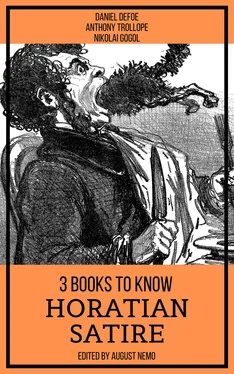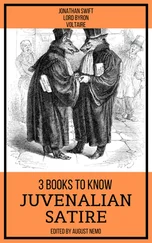ENOUGH, pro. All there is in the world if you like it.
Enough is as good as a feast—for that matter
Enougher's as good as a feast for the platter.
Arbely C. Strunk
ENTERTAINMENT, n. Any kind of amusement whose inroads stop short of death by injection.
ENTHUSIASM, n. A distemper of youth, curable by small doses of repentance in connection with outward applications of experience. Byron, who recovered long enough to call it "entuzy-muzy," had a relapse, which carried him off—to Missolonghi.
ENVELOPE, n. The coffin of a document; the scabbard of a bill; the husk of a remittance; the bed-gown of a love-letter.
ENVY, n. Emulation adapted to the meanest capacity.
EPAULET, n. An ornamented badge, serving to distinguish a military officer from the enemy—that is to say, from the officer of lower rank to whom his death would give promotion.
EPICURE, n. An opponent of Epicurus, an abstemious philosopher who, holding that pleasure should be the chief aim of man, wasted no time in gratification from the senses.
EPIGRAM, n. A short, sharp saying in prose or verse, frequently characterized by acidity or acerbity and sometimes by wisdom. Following are some of the more notable epigrams of the learned and ingenious Dr. Jamrach Holobom:
We know better the needs of ourselves than of others. To
serve oneself is economy of administration.
In each human heart are a tiger, a pig, an ass and a
nightingale. Diversity of character is due to their unequal
activity.
There are three sexes; males, females and girls.
Beauty in women and distinction in men are alike in this:
they seem to the unthinking a kind of credibility.
Women in love are less ashamed than men. They have less to be
ashamed of.
While your friend holds you affectionately by both your hands
you are safe, for you can watch both his.
EPITAPH, n. An inscription on a tomb, showing that virtues acquired by death have a retroactive effect. Following is a touching example:
Here lie the bones of Parson Platt,
Wise, pious, humble and all that,
Who showed us life as all should live it;
Let that be said—and God forgive it!
ERUDITION, n. Dust shaken out of a book into an empty skull.
So wide his erudition's mighty span,
He knew Creation's origin and plan
And only came by accident to grief—
He thought, poor man, 'twas right to be a thief.
Romach Pute
ESOTERIC, adj. Very particularly abstruse and consummately occult. The ancient philosophies were of two kinds,—exoteric, those that the philosophers themselves could partly understand, and esoteric, those that nobody could understand. It is the latter that have most profoundly affected modern thought and found greatest acceptance in our time.
ETHNOLOGY, n. The science that treats of the various tribes of Man, as robbers, thieves, swindlers, dunces, lunatics, idiots and ethnologists.
EUCHARIST, n. A sacred feast of the religious sect of Theophagi.
A dispute once unhappily arose among the members of this sect as
to what it was that they ate. In this controversy some five hundred
thousand have already been slain, and the question is still unsettled.
EULOGY, n. Praise of a person who has either the advantages of wealth and power, or the consideration to be dead.
EVANGELIST, n. A bearer of good tidings, particularly (in a religious sense) such as assure us of our own salvation and the damnation of our neighbors.
EVERLASTING, adj. Lasting forever. It is with no small diffidence that I venture to offer this brief and elementary definition, for I am not unaware of the existence of a bulky volume by a sometime Bishop of Worcester, entitled, A Partial Definition of the Word "Everlasting," as Used in the Authorized Version of the Holy Scriptures. His book was once esteemed of great authority in the Anglican Church, and is still, I understand, studied with pleasure to the mind and profit of the soul.
EXCEPTION, n. A thing which takes the liberty to differ from other things of its class, as an honest man, a truthful woman, etc. "The exception proves the rule" is an expression constantly upon the lips of the ignorant, who parrot it from one another with never a thought of its absurdity. In the Latin, "Exceptio probat regulam" means that the exception tests the rule, puts it to the proof, not confirms it. The malefactor who drew the meaning from this excellent dictum and substituted a contrary one of his own exerted an evil power which appears to be immortal.
EXCESS, n. In morals, an indulgence that enforces by appropriate penalties the law of moderation.
Hail, high Excess—especially in wine,
To thee in worship do I bend the knee
Who preach abstemiousness unto me—
My skull thy pulpit, as my paunch thy shrine.
Precept on precept, aye, and line on line,
Could ne'er persuade so sweetly to agree
With reason as thy touch, exact and free,
Upon my forehead and along my spine.
At thy command eschewing pleasure's cup,
With the hot grape I warm no more my wit;
When on thy stool of penitence I sit
I'm quite converted, for I can't get up.
Ungrateful he who afterward would falter
To make new sacrifices at thine altar!
EXCOMMUNICATION, n.
This "excommunication" is a word
In speech ecclesiastical oft heard,
And means the damning, with bell, book and candle,
Some sinner whose opinions are a scandal—
A rite permitting Satan to enslave him
Forever, and forbidding Christ to save him.
Gat Huckle
EXECUTIVE, n. An officer of the Government, whose duty it is to enforce the wishes of the legislative power until such time as the judicial department shall be pleased to pronounce them invalid and of no effect. Following is an extract from an old book entitled, The Lunarian Astonished—Pfeiffer & Co., Boston, 1803:
LUNARIAN: Then when your Congress has passed a law it goes
directly to the Supreme Court in order that it may at once be
known whether it is constitutional?
TERRESTRIAN: O no; it does not require the approval of the
Supreme Court until having perhaps been enforced for many
years somebody objects to its operation against himself—I
mean his client. The President, if he approves it, begins to
execute it at once.
LUNARIAN: Ah, the executive power is a part of the legislative.
Do your policemen also have to approve the local ordinances
that they enforce?
TERRESTRIAN: Not yet—at least not in their character of
constables. Generally speaking, though, all laws require the
approval of those whom they are intended to restrain.
LUNARIAN: I see. The death warrant is not valid until signed by
the murderer.
TERRESTRIAN: My friend, you put it too strongly; we are not so
consistent.
LUNARIAN: But this system of maintaining an expensive judicial
machinery to pass upon the validity of laws only after they
have long been executed, and then only when brought before the
court by some private person—does it not cause great
confusion?
TERRESTRIAN: It does.
LUNARIAN: Why then should not your laws, previously to being
executed, be validated, not by the signature of your
President, but by that of the Chief Justice of the Supreme
Court?
TERRESTRIAN: There is no precedent for any such course.
LUNARIAN: Precedent. What is that?
TERRESTRIAN: It has been defined by five hundred lawyers in three
volumes each. So how can any one know?
EXHORT, v.t. In religious affairs, to put the conscience of another upon the spit and roast it to a nut-brown discomfort.
EXILE, n. One who serves his country by residing abroad, yet is not an ambassador.
Читать дальше












